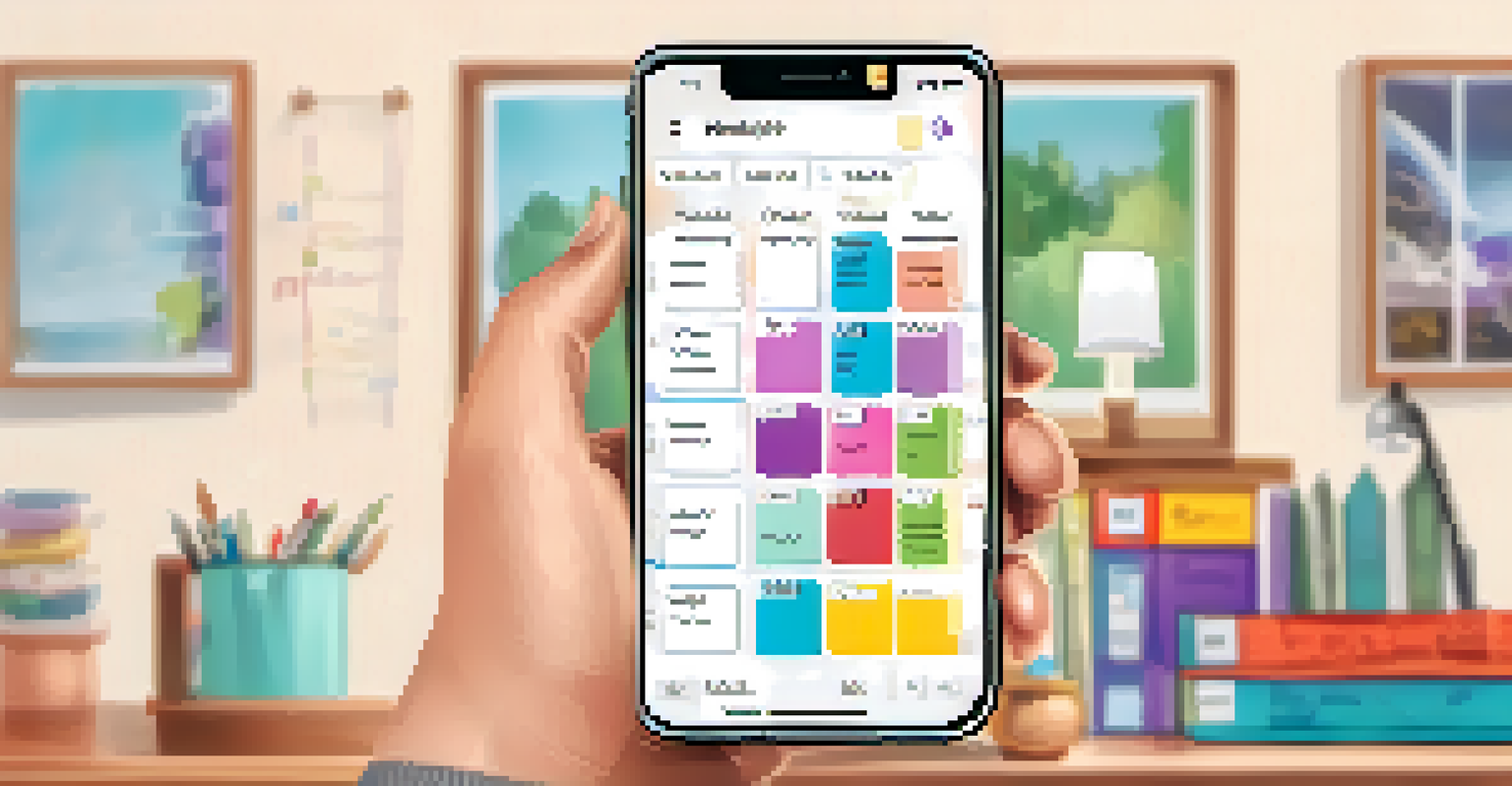Asynchronous Learning: The Importance of Time Management

Understanding Asynchronous Learning and Its Flexibility
Asynchronous learning offers a flexible approach to education, allowing students to learn at their own pace. This means you can access materials, lectures, and assignments whenever it suits you best, whether that’s early in the morning or late at night. However, this flexibility requires a certain level of discipline and self-motivation to ensure you stay on track with your studies.
Time management is life management.
Imagine trying to bake a cake without a timer. You might mix all the ingredients perfectly, but if you don’t monitor the baking time, you could end up with a disaster. Similarly, in asynchronous learning, if you don’t manage your time effectively, you risk falling behind or missing deadlines.
Ultimately, understanding the structure of asynchronous learning can help you appreciate the importance of being proactive in managing your study time. By setting your own schedule, you can create a learning environment that works best for you, but it also means taking responsibility for your progress.
The Role of Time Management in Academic Success
Time management is crucial in any learning environment, but it becomes even more vital in asynchronous settings. Without regular class meetings, it can be easy to procrastinate or feel overwhelmed by the workload. Effective time management helps you break down tasks into manageable parts, which can lead to a more productive and less stressful learning experience.

Think of time management like a road map for your educational journey. Just as you wouldn’t set out on a road trip without knowing your route, you shouldn’t dive into your studies without a clear plan. Setting specific goals and deadlines for yourself can guide you along the way, ensuring you reach your destination successfully.
Flexibility Requires Discipline
While asynchronous learning allows students to study at their own pace, it demands self-motivation and effective time management.
Additionally, mastering time management skills can enhance your overall personal and professional life. These skills can benefit you not only in school but also in future employment, where meeting deadlines and managing multiple tasks is often essential.
Creating a Personalized Study Schedule
One of the key strategies for effective time management in asynchronous learning is creating a personalized study schedule. This schedule should reflect your unique learning style, commitments, and peak productivity times. By allocating specific times for studying, you can create a routine that helps you stay focused and organized.
Procrastination is the art of keeping up with yesterday.
For example, if you find that you’re most alert and productive in the mornings, you might dedicate those early hours to tackling your most challenging subjects. On the other hand, if you’re a night owl, setting aside time in the evening could work better for you. The key is to find what makes you feel most engaged and stick to that routine.
Incorporating breaks into your schedule is also crucial. Just like a runner needs to pause and catch their breath, your brain needs time to recharge. By scheduling short breaks, you can maintain your focus and avoid burnout, ultimately leading to better learning outcomes.
Setting Realistic Goals to Stay Motivated
To effectively manage your time, it's essential to set realistic and achievable goals. These can be daily, weekly, or even monthly objectives that provide a sense of direction and purpose in your studies. When your goals are clear and attainable, you’re more likely to stay motivated and engaged in your learning.
Consider using the SMART criteria—Specific, Measurable, Achievable, Relevant, and Time-bound—when setting your goals. For instance, instead of saying, 'I want to study more,' you could say, 'I will study for two hours every Monday and Wednesday after dinner.' This approach not only clarifies your intentions but also makes it easier to track your progress.
Personalized Schedules Enhance Learning
Creating a tailored study schedule that aligns with individual productivity patterns can significantly improve focus and organization.
Celebrating small victories along the way can also boost your motivation. Each time you complete a goal, take a moment to acknowledge your hard work. This positive reinforcement will help you stay committed to your study schedule and make learning feel more rewarding.
Using Tools and Apps for Effective Time Management
In today’s digital age, numerous tools and apps can enhance your time management skills. From calendar apps to project management software, these resources can help you organize your tasks and keep track of deadlines. By utilizing technology, you can streamline your study process and make the most of your time.
For example, apps like Trello or Todoist allow you to create to-do lists and prioritize tasks visually. This method can help you see what needs to be done at a glance, making it less likely for important assignments to slip through the cracks. Similarly, calendar apps can send you reminders for upcoming deadlines, ensuring you’re always prepared.
Experimenting with different tools can help you discover what works best for you. Remember, the goal is to find a system that simplifies your life and allows you to focus more on learning rather than getting bogged down by organizational tasks.
Overcoming Procrastination: Tips and Techniques
Procrastination is a common challenge in asynchronous learning, but there are effective strategies to combat it. One effective technique is breaking tasks into smaller, manageable chunks. When a large assignment feels overwhelming, dividing it into smaller parts can make it seem less daunting and more achievable.
Additionally, setting a timer for focused study sessions can help you stay on track. This method, often called the Pomodoro Technique, involves working for 25 minutes and then taking a 5-minute break. This approach not only enhances focus but also provides built-in time for rest, making studying feel less like a chore.
Reflect and Adjust for Success
Regularly assessing your progress and adapting your study strategies is crucial for continuous improvement and academic achievement.
Remember that it’s normal to struggle with procrastination from time to time. The key is to recognize when it’s happening and implement these strategies to gently steer yourself back on course. With practice, you can develop healthier habits and find a rhythm that works for your learning style.
Reflecting on Progress and Adjusting Your Approach
Regularly reflecting on your learning progress is essential for effective time management. Taking the time to assess what’s working and what isn’t can help you make necessary adjustments to your study habits. This reflection can be as simple as reviewing your completed tasks each week and identifying any areas for improvement.
For instance, if you notice that you consistently struggle to meet deadlines, it may be time to reevaluate your schedule or workload. Are you taking on too much at once? Or is your study environment distracting you? By asking these questions, you can refine your approach and create a more productive study experience.

Moreover, adapting your strategies based on your reflections can lead to continuous improvement. Embracing flexibility in your learning methods allows you to evolve and find what truly works best for you, ultimately leading to greater academic success.